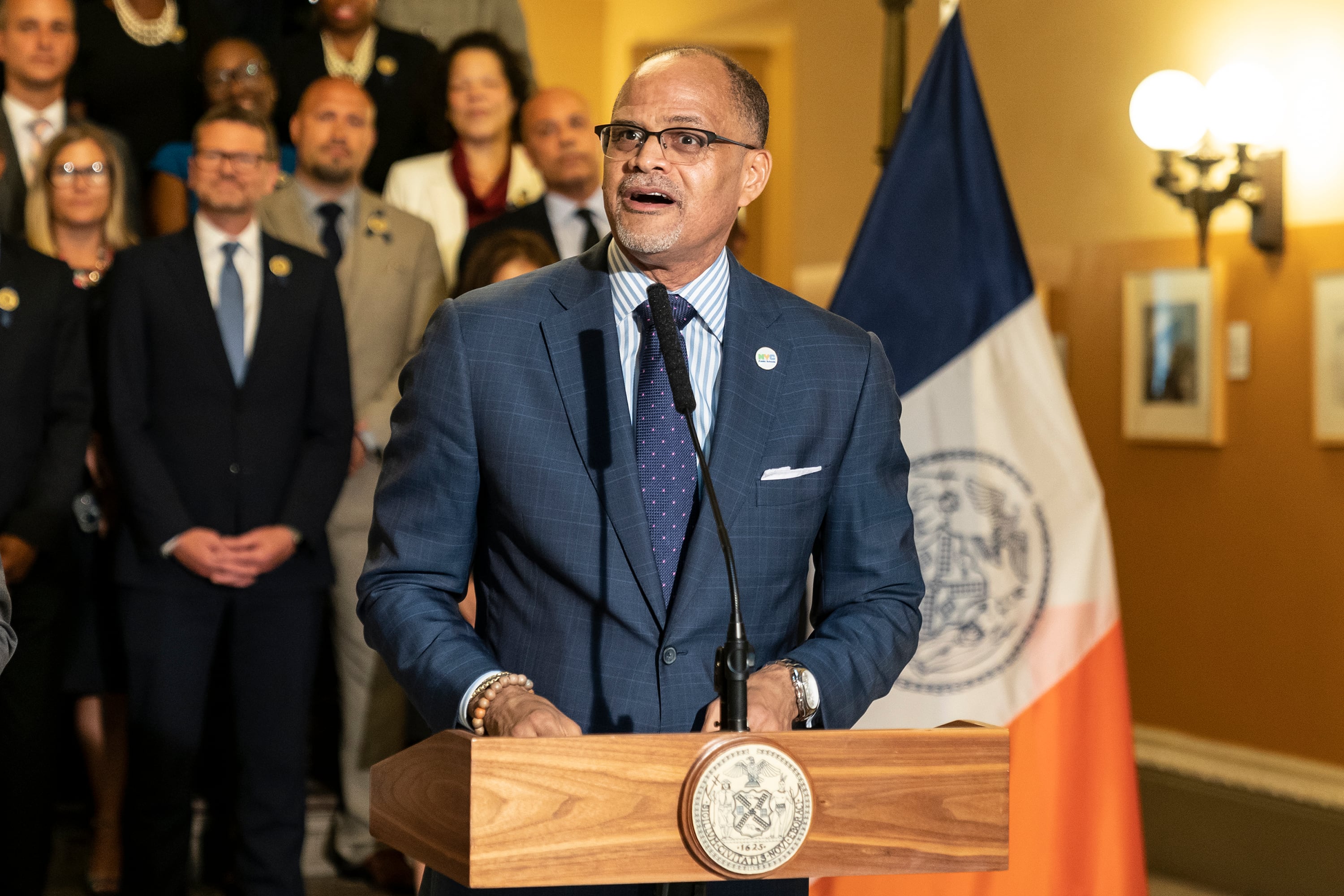New York City schools Chancellor David Banks will testify at a U.S. House of Representatives Committee on Education and the Workforce hearing on antisemitism next month, he told reporters Thursday.
Banks said that he received a letter from the committee, which conducted high-profile hearings last year with the presidents of elite colleges, asking him to testify at a May 8 hearing under the threat of subpoena.
The committee, chaired by North Carolina Republican Virginia Foxx, also invited two other school districts that Banks declined to name. A spokesperson for the committee confirmed Banks was invited but didn’t immediately provide other information about the hearing.
“We look forward to joining the committee and sharing how New York City Public Schools continue to deliver an environment of tolerance and respect for the largest and most diverse school district in the nation,” Banks said at a Thursday roundtable with reporters.
The nation’s largest school system, like districts across the country, has dealt with a surge in tensions following Hamas’s Oct. 7 attack on Israel and Israel’s subsequent bombardment of the Gaza Strip.
The city’s Education Department is currently under investigation by the federal Education Department for its response to incidents of antisemitism and Islamophobia.
Hillcrest High School in Queens, Banks’ alma mater, made national news in November after students staged a raucous protest calling for the ouster of a teacher who posted a picture of herself on social media holding a sign that read “I Stand With Israel.”
Banks condemned the protest and said several students were disciplined for their part in the affair. But he stressed that many teens at the school, which has a large Muslim population, were seeing images on social media “on a daily basis” of “children and young people in Palestine … being blown up” and struggling to cope with their grief and anger. He vowed to turn the incident a “teaching moment” and ultimately replaced the school’s principal.
Staff at Origins High School in southern Brooklyn recently alleged that rampant antisemitism from students was going unchecked by administrators — an accusation that city Education Department officials strongly disputed.
In January, following complaints from some students and educators about a lack of opportunities to talk productively about the Israel-Hamas war in school, Banks committed to offering new training for school leaders on holding difficult conversations and responding to incidents of bias and discrimination.
On Thursday, as he reflected on the city’s response to the tumult in schools around the Israel-Hamas war, Banks said “I wouldn’t say that I’m proud of what we’ve done.”
But “I think we’ve done what we’re supposed to do,” he said.
The war has stirred up “all kinds of emotions in kids as well as adults, and we’ve got to manage all of that. For an entire system, that is not easy to do,” he added. “But I believe that our team has demonstrated a level of leadership that I am more than willing to be at the table and to express what we have done.”
The House committee that Banks will appear before made headlines in December for a marathon hearing with the presidents of Harvard, the University of Pennsylvania, and the Massachusetts Institute of Technology, spawning viral clips of representatives grilling the administrators on their definitions of and policies for antisemitism on campus. Two of those presidents subsequently resigned.
Michael Elsen-Rooney is a reporter for Chalkbeat New York, covering NYC public schools. Contact Michael at melsen-rooney@chalkbeat.org.





